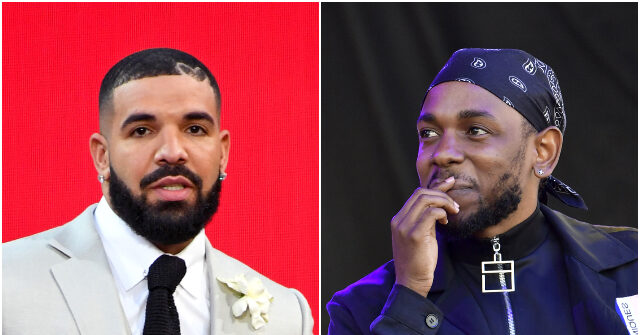In a recent court filing, rapper Drake has leveled serious allegations against Universal Music Group (UMG), claiming the company artificially inflated the streaming popularity of Kendrick Lamar’s contentious track “Not Like Us.” Released in May, the song contains aggressive lyrics aimed directly at Drake, denouncing him with lines such as “Certified Lover Boy? Certified pedophiles.” The filing, made by Drake’s company Frozen Moments LLC in a New York court, seeks the preservation and disclosure of what Drake describes as potentially incriminating evidence against UMG related to their promotional practices. The tensions between Drake and Lamar, both prominent figures in the hip-hop realm, have been heightened due to this competitive feud, which has escalated significantly in 2023.
Drake’s petition asserts that UMG initiated a deliberate campaign to manipulate streaming metrics across platforms like Spotify to ensure “Not Like Us” went viral. He contends that this involved the use of illicit methods, such as bots and pay-for-play agreements, to enhance visibility and streaming numbers for Lamar’s song. Furthermore, Drake alleges that UMG has demonstrated a troubling pattern by terminating employees who were seen as supportive of him in an attempt to obscure their purported manipulative practices. The petition alleges that UMG has a long-standing and mutually beneficial relationship with Spotify, suggesting that UMG provided special licensing rates to promote Lamar’s track specifically.
UMG has responded vehemently to these claims, labeling them as “offensive and untrue.” In a statement, the company emphasized its commitment to ethical practices and asserted that the typical music-consuming audience is the driving force behind what becomes popular rather than any manipulation on their part. UMG argues that the legal arguments presented by Drake are contrived and fail to disguise the reality that it is the fans who ultimately make the music they enjoy successful, indicating that any success “Not Like Us” has achieved is purely the result of listener choice.
“Not Like Us” has gained significant traction, accumulating over 900 million streams on Spotify, and is emblematic of the ongoing rivalry between the two artists, which has grown especially heated this year. The song continues to stir attention both for its content and its performance metrics. Amidst these allegations, representatives from Spotify have refrained from commenting directly on the dispute but have historically expressed a commitment to monitoring and minimizing the impact of fraudulent streaming practices on their platform. They maintain that significant investments have been made in both automated and manual review processes to protect the integrity of their streaming data.
The history between Drake and Lamar carries significant weight, as both artists have collaborated in the past but have since developed a fraught relationship marked by public diss tracks and provocative jabs at one another. The feud, which first gained momentum in 2013, has become one of the most publicized and contentious rivalries within the hip-hop genre. The legal move on Drake’s part, while not yet a formal lawsuit, represents a major escalation in this conflict, intertwining the personal animosity between the two musicians with the business relationships they maintain with major record labels and streaming services.
As the stakes climb in this high-profile battle, the implications extend beyond individual careers, touching upon the practices of music distribution and promotion at large. The intertwining of personal disputes with commercial interests encapsulates the dynamic nature of the music industry, particularly within hip-hop, where rivalries often translate into commercial success or failure. With Drake seeking evidence to support his claims against UMG, the potential for a substantial legal battle looms, raising questions about the intersection of artistry, ethics, and the economics of the music industry in the digital age.

